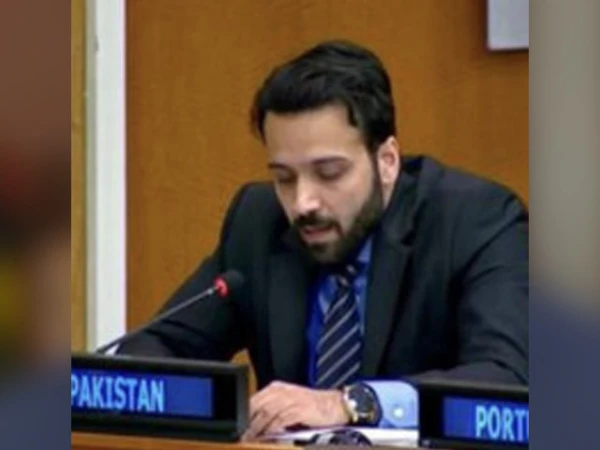Special Correspondent
UNITED NATIONS: During the 80th session of the United Nations General Assembly, Pakistan’s Second Secretary Muhammad Rashid forcefully rejected Indian allegations, accusing New Delhi of being the true source of terrorism, human rights violations, and state repression in South Asia.
Speaking in response to India’s Foreign Minister, he said the statement delivered by India was nothing more than a recycled attempt to malign Pakistan through false narratives and baseless claims.
Rashid reminded the Assembly that Pakistan has sacrificed more than 90,000 lives in the fight against terrorism — sacrifices that, he stressed, are acknowledged globally.
He underscored that Pakistan continues to play a pivotal role in international counterterrorism efforts, as reaffirmed by the country’s Prime Minister at the same forum.
Turning to India, the Pakistani diplomat argued that New Delhi itself was the chief perpetrator of terrorism in the region. “India is an occupier and an aggressor, holding South Asia hostage to its hegemonic ambitions and extremist ideologies that fuel hatred, division, and prejudice,” he said.
He advanced three central arguments. First, he accused India of illegally occupying territories and subjecting local populations to systematic oppression, citing Jammu and Kashmir as the most glaring example, where extrajudicial killings, arbitrary detentions, and collective punishments have become routine.
Second, he pointed to India’s alleged covert terrorism network, which, he said, was exposed with the arrest of serving naval officer and intelligence agent Commander Kulbhushan Jadhav, caught in acts of sabotage inside Pakistan.
Finally, he dismissed Indian claims regarding the recent Pahalgam incident as baseless and politically motivated, noting that Pakistan not only condemned the attack alongside other UN Security Council members but also offered an independent investigation — a proposal India swiftly rejected.
Rashid concluded that India’s strategy of repeating falsehoods could not conceal its own record of repression and terrorism, adding that the international community must see through what he called New Delhi’s “fabricated script.”


Comments are closed.